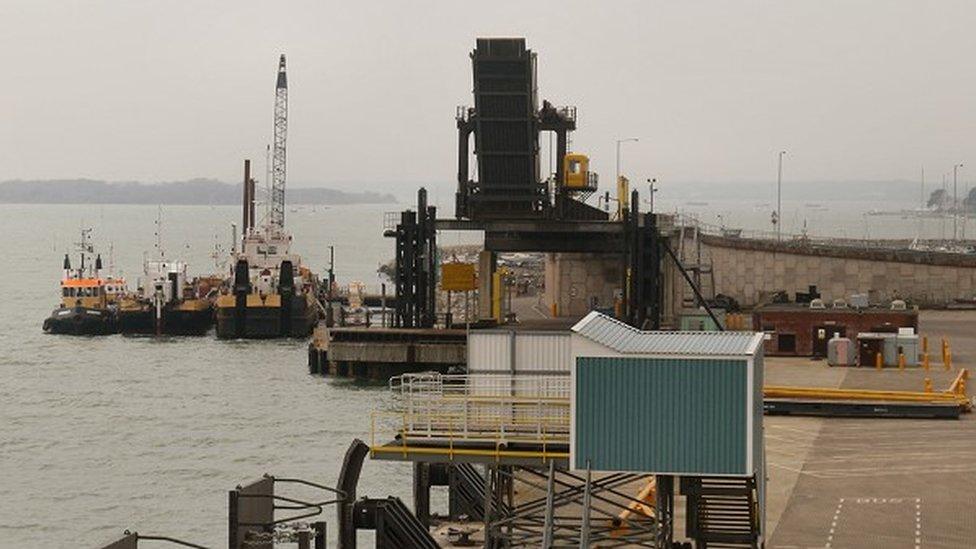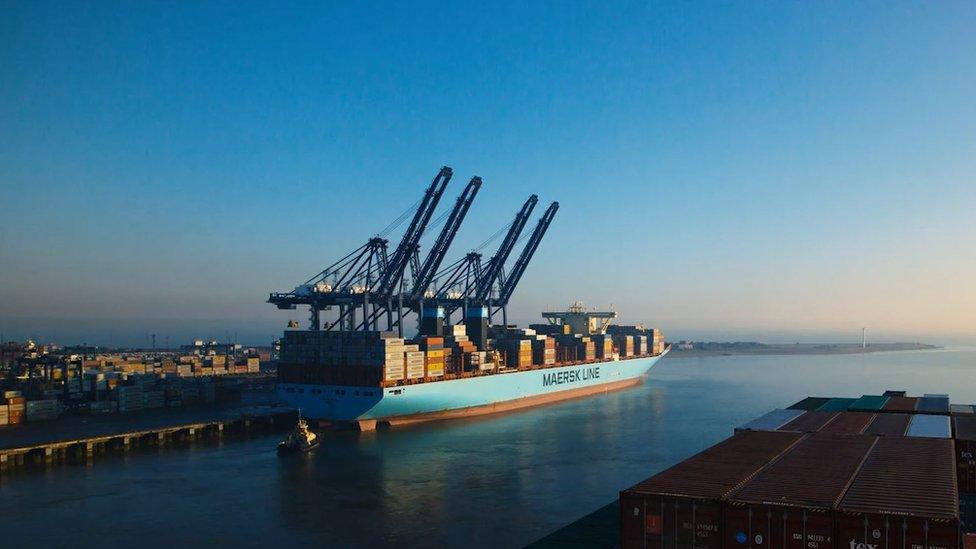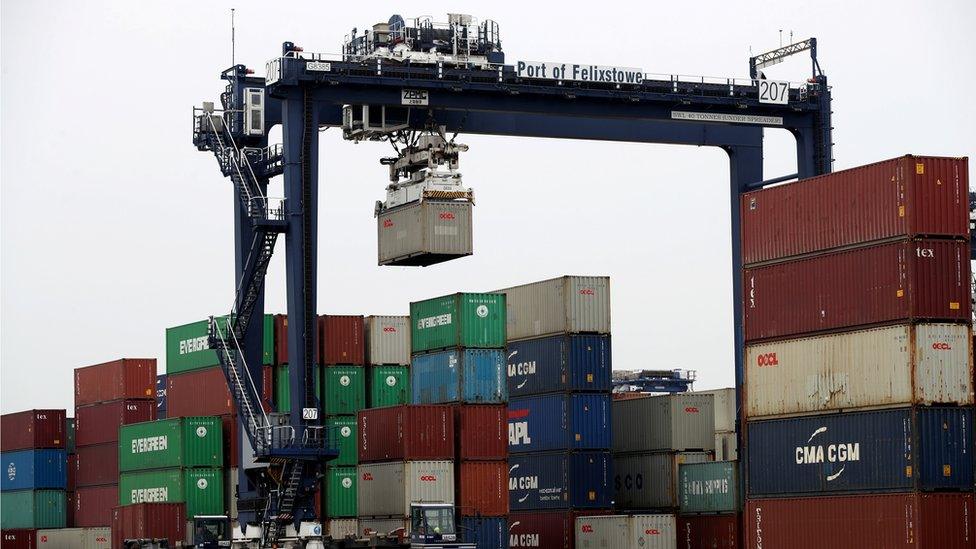Bournemouth, Christchurch and Poole prepare bid for free port status
- Published

Poole Harbour offers both passenger and freight services
A bid to designate Bournemouth, Christchurch and Poole as a low-tax status free port is to be launched.
Bournemouth, Christchurch and Poole (BCP) Council is collaborating with Bournemouth Airport and Poole Harbour, aiming to become one of 10 free ports to be created by the government.
Council leader Drew Mellor, said it would bring "long-term benefits"
Free ports allow firms to import goods and then re-export them outside normal tax and customs rules.
The UK last had such zones in 2012 and they are permitted under EU law.
Backers argue the benefits would be greater following the UK's departure from the bloc, if the UK is allowed to diverge from EU rules.
The council is due to set aside £50,000 for a bid for free port status ahead of the government's deadline for submissions in February, according to the Local Democracy Reporting Service.
'Significant boost'
Mr Mellor said: "This council is absolutely committed to championing our local economy as we both deal with the pandemic and plan for future prosperity," he said.
"As we go through the EU transition process we must make sure that our area is ready to capitalise on the worldwide trading opportunities that it presents and that is why I want us to be at the front of the queue when government is looking at their first 10 free ports."
The government has said free ports will have "a wide package of tax reliefs and simplified customs procedures" to encourage their use as trade centres.
"Our free ports will be international centres for trade and investment, powering regeneration, job creation and entrepreneurship," communities secretary Robert Jenrick said last month.

What are free ports?
Also called free-trade zones, they are designated areas where the normal tax and tariff rules of the country in which they are based do not apply.
They allow goods to be imported, manufactured and re-exported without being subject to checks, paperwork, or import taxes, known as tariffs.
This means raw materials can be imported, then engineered into whole products for export.
Typically, companies operating in the zone pay lower taxes, such as reduced VAT and lower rates of employment tax.
But critics argue they simply defer the point when import tariffs are paid, which then still need to be paid at some stage.

- Published25 November 2020

- Published2 August 2019
